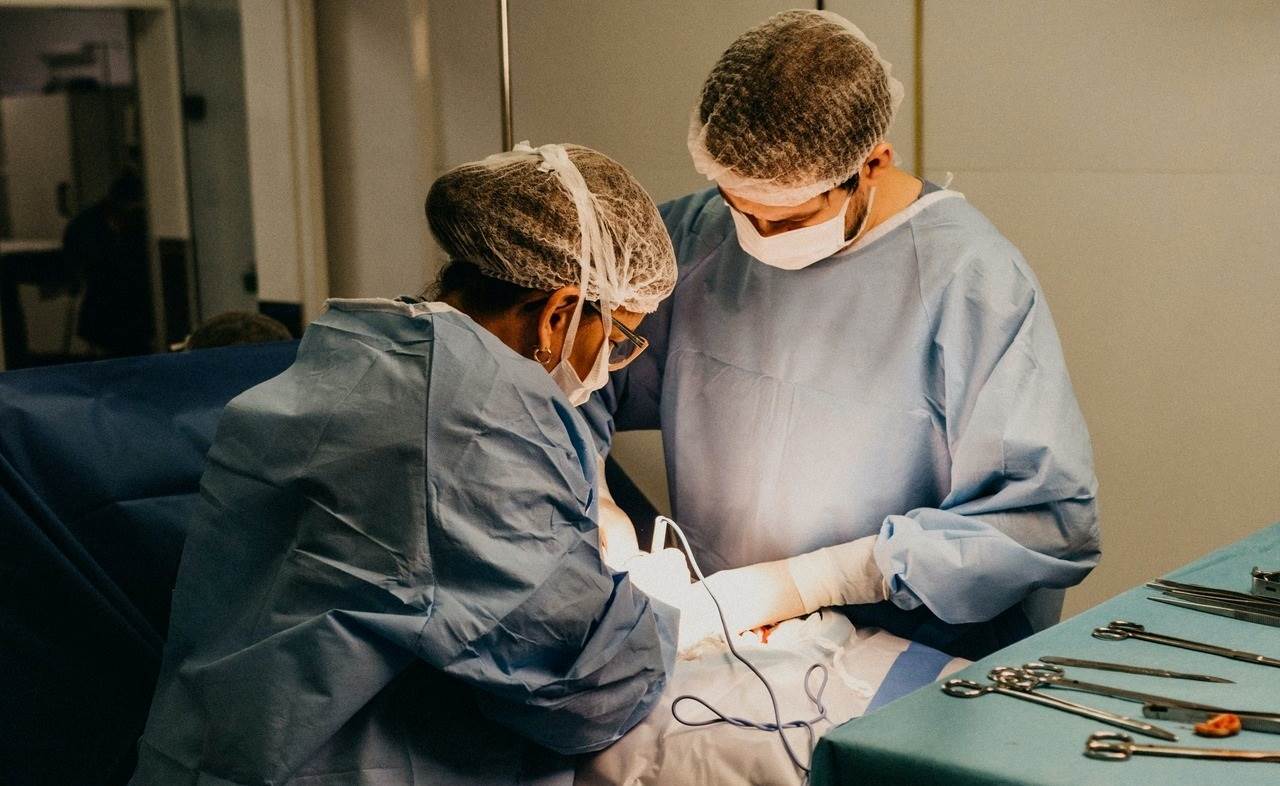What are blue balls?
Blue balls is a casual term for discomfort that can happen after strong sexual arousal without orgasm. People often describe heaviness, pressure, or a dull ache in the scrotum, sometimes with discomfort that radiates into the groin or lower abdomen. Searches like blue balls symptoms, blue balls pain, what does blue balls feel like, and testicular congestion are usually about this same experience.
The name can be misleading because it sounds like sperm is dangerously building up. In most everyday cases, a more plausible explanation is temporary genital vasocongestion: during arousal, blood flow increases and tissues become engorged, and if arousal stays high for a long time or ends abruptly, it can take longer for the body to return to baseline.
The main point is simple: the typical blue-balls pattern is uncomfortable but usually not dangerous. The bigger risk is assuming all scrotal pain is blue balls and missing a condition that needs urgent care.
What happens in your body and why can it hurt?
Sexual arousal is a physical response. Blood vessels dilate, tissues swell, and nerve signals become more intense. After orgasm, or when arousal clearly drops, the body usually shifts back toward a resting state.
If arousal remains high for a long time or stops without resolution, that downshift may be slower. The result can feel like pressure, pulling, or a dull ache in the scrotum or testicles. Some people notice it mainly in the scrotum, while others feel it as a heavy, nagging discomfort that seems to sit deeper in the pelvis or lower abdomen.
One reason the topic can get confusing is that different people use different words for similar sensations: aching after arousal, soreness after being turned on, or scrotal pain after sex. The timing and the overall pattern are often more informative than the label.
A clinician-friendly overview of blue balls and common relief approaches is summarized by the Cleveland Clinic. Cleveland Clinic: Blue balls explained
Who this is relevant for and who should be extra cautious
Many people experience this at least once, and some are more prone to it. It is most common after prolonged arousal without orgasm, including interrupted sex, extended foreplay, edging, or masturbating without climax. That is why searches like how to get rid of blue balls, how to stop blue balls, how to treat blue balls, and blue ball relief are so common.
Be more cautious if the pain is new for you, clearly one-sided, comes on suddenly and intensely, or is paired with other symptoms. In those situations, it matters more to consider other causes than to focus on the blue balls label.
If you have recurrent episodes that are disruptive, it can also be worth a check-in. Most people never need testing for this, but repeated scrotal pain is not something you have to normalize.
Blue balls symptoms: what does it feel like?
Typical symptoms include a dull ache, heaviness, pressure, or a pulling sensation in the scrotum. Some people notice mild tenderness, and some feel discomfort that spreads into the groin or lower abdomen.
Visible blue or purple discoloration is uncommon and usually subtle if it happens at all. If you see obvious discoloration together with swelling or significant pain, that does not fit the usual pattern and should be evaluated.
Time course matters. Blue-balls-type discomfort usually builds gradually and then fades as arousal drops. Sudden, severe pain is a different pattern and should be treated as a warning sign.
How long does blue balls last?
For most people, symptoms improve within minutes to a few hours once arousal clearly decreases. The typical trajectory is improvement, not escalation. If you are searching how long does blue balls last or how long does it take for blue balls to go away, the best answer is that it varies, but it is usually short-lived.
It is less typical if pain worsens, does not improve after many hours, keeps returning in the same way, or starts occurring without a clear arousal trigger. In those cases, it is reasonable to talk to a clinician rather than writing it off.
If you are dealing with discomfort that lingers into the next day or repeatedly interferes with daily life, that is another good reason to get checked. A benign explanation is possible, but you want to rule out infections, hernias, or other causes that have a different treatment.
How to relieve blue balls
The goal is to let the arousal response settle and help your body return to baseline. That is the core behind searches like how to cure blue balls, how to treat blue balls, remedy for blue balls, how to stop blue balls, and how to make blue balls go away.
- Let arousal drop on purpose by changing context, standing up, walking, hydrating, or shifting attention.
- Try gentle movement if it feels comfortable, especially if you have been still for a long time.
- Wear looser clothing and avoid positions that add pressure to the scrotum.
- Use relaxation and slow breathing, or a warm shower if warmth feels soothing.
- Orgasm can bring faster relief for some people, but only if you want that and it is a good choice for you.
You do not have to orgasm for symptoms to improve. Many people feel relief simply when arousal truly decreases. If heat feels unpleasant, a brief neutral-cool sensation can feel better, but avoid extreme cold and avoid prolonged pressure.
What usually does not help is forcing yourself through intense discomfort, repeatedly checking the area, or trying aggressive cooling. If pain is significant, the priority is to rule out causes where time matters, not to push a home fix.
Prevention: let arousal wind down naturally
If you are prone to it, it can help not to keep arousal high for long periods without any downshift. If sex is interrupted, a calmer cooldown can make it easier for the body to settle. This is not a rule and not a performance expectation. It is simply a practical pattern many people recognize.
For some, shorter breaks, less edging, or clearer communication around stopping points helps. For others, it is enough to know it can happen and that it usually passes.

Why this topic can be socially sensitive
Some people use blue balls as an argument to pressure a partner. That is not acceptable. Even if discomfort can happen, it is never a reason to push boundaries. Sexual decisions must stay voluntary.
A larger survey study discusses reports of congestion-type discomfort and the social context that can accompany it. Open-access paper in Sexual Medicine
Myths and facts
- Myth: Sperm builds up and causes the pain. Fact: In typical cases, the discomfort fits better with temporary congestion and tension, and sperm cells that are not ejaculated are continuously broken down and recycled.
- Myth: Blue balls is dangerous. Fact: The usual pattern is not, but other causes of testicular pain can be urgent.
- Myth: Only teens get it. Fact: It can happen at any age when the situation fits.
- Myth: Heat is always better than cold. Fact: Comfort differs by person, and extremes matter more than the temperature choice.
- Myth: The testicles literally turn blue. Fact: Obvious discoloration is uncommon, and marked discoloration with pain should be checked.
- Myth: Without masturbation it will last forever. Fact: It usually fades as arousal drops, even without orgasm.
- Myth: Strong willpower prevents it. Fact: It is a body response to arousal, not a moral or mental failing.
- Myth: You need intense exercise to fix it. Fact: Gentle movement may help, but heavy training is not required.
Legal and practical context
Blue balls is not a legal topic in itself, but the practical context still matters. Health information is not the same as personal medical advice, and access to urgent care, documentation, and privacy rules differ internationally. If you are traveling or living outside your usual health system, it helps to know where you would go for urgent evaluation of sudden testicular pain.
International rules and care pathways can differ. This overview is general information, not legal advice, and it cannot replace local medical assessment when symptoms are concerning.
When to see a clinician
The most important step is knowing what not to miss. Testicular pain can be harmless, but there are emergencies where time matters. Testicular torsion often causes sudden, severe, usually one-sided pain and may come with nausea or vomiting. Mayo Clinic: Testicular torsion
- Sudden, severe pain, especially on one side.
- Nausea or vomiting with scrotal pain.
- Rapid swelling, a very tender scrotum, or a testicle that feels unusually firm.
- Fever, marked redness, or worsening pain with touch.
- Obvious discoloration that does not quickly improve.
- Pain after an injury that persists.
- Pain that is new, escalating, or lasting many hours to days.
For a broader overview of what can cause testicular pain, these NHS pages are a clear starting point. NHS: Testicle pain and NHS: Epididymitis
Other causes that can look similar
If the pattern is not typical, there are many possibilities. These include infections such as epididymitis, irritation after intense activity, hernias, fluid collections, and other urologic problems.
A practical rule of thumb is that blue-balls-type discomfort usually has a clear link to prolonged arousal without orgasm and improves as arousal drops. Pain that appears out of context, starts suddenly, becomes sharply worse, or repeats without the same trigger deserves evaluation.
If you are also noticing urinary symptoms, fever, or worsening tenderness, it is more consistent with infection than with simple congestion.
Sexual health, hygiene, and what happens if it keeps coming back
If symptoms recur, intensify, or the pattern changes, it is reasonable to get checked. Depending on your symptoms, a clinician may consider an exam, urine testing, STI testing, and sometimes ultrasound to rule out infection or other causes.
If you also have burning with urination, discharge, fever, or feel generally unwell, think beyond blue balls and seek care sooner.
For STI basics and when testing matters, the CDC has a straightforward overview. CDC: sexually transmitted infections
Conclusion
Blue balls usually describes a temporary dull ache or pressure after prolonged arousal without orgasm. In most cases it is uncomfortable but harmless and improves as arousal drops.
The most important takeaway is not to miss red flags. Sudden, severe, one-sided, or persistent testicular pain is not something to self-diagnose. If you are unsure, get it evaluated.

